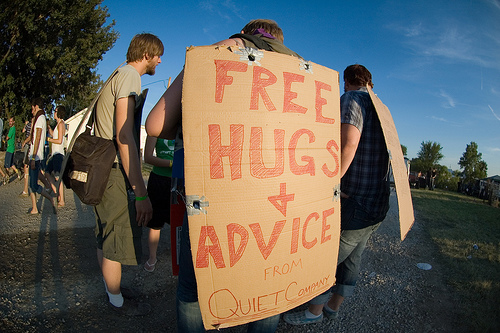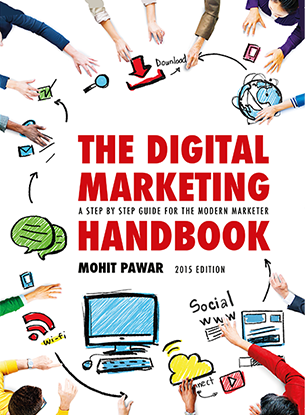
Which one of these two will you take?
Have you ever looked for free advice?
I bet you have.
Most of the search queries at a search engine come from people looking to find “solution” to their “problem” or willing to learn something new.
The problem can be starting something new and finishing a project, finding gift ideas for your own birthday. People search for ideas on how to start a business with little money or how to use their time well. People also look for health related info, details about automobiles, gadgets and numerous other topics.
This is good business for search engines. Google’s 2012 revenues were more than US$ 50 billion and most of it came from small text ads that you see on the search engine results page.
This also explains the rise of online publishing and millions of people working to create their own online platforms. People now go less to a print newspaper or magazine and more to new age outlets with interesting formats, some of which are digital only and focused on mobile only consumers.
Thanks to this revolution, you are here today and I appreciate it.
Good advice and bad advice
While a lot of information on the web is good, a lot more is not worth our time. Search engines do a good job to show the most relevant information on first page of search results. But it is not perfect. You need to use your own judgement when relying on this free information.
The creators and publishers should be responsible enough to create quality content. Because it makes business sense. It also creates good karma.
The relevance (and profits) of search engines depend on the quality of their results so they are working on making it better. Innovation happens in places big and small that is why comparatively new search engines like DuckDuckGo are able to find users.
Is free advice really free?
Your life is at stake or at least affected by the decision you take based on free advice, so pay attention to what you read. You are investing your time which is a limited commodity – spend it wisely.
Keep these in mind when you deal with free advice next as a giver or receiver.
If you are the giver.
You may be a publisher writing for your own website or a consultant shelling out free advice just for the benefit of those who come to you – or just a friend trying to help your friend.
-
Know what you are talking about. You need not be an expert but proficient in the topic being discussed.
-
Tell whatever you do – with right intent (it matters more than we think).
-
If someone asks you about something – and you do not know about it, just say so. Don’t fool other person by telling something vague about the topic.
-
Make it clear – what worked for you may not work for others.
-
Talk about basics, and support with personal experience whenever you can. For example – I am pretty sure that limiting use of internet/email in morning hours works wonders for your productivity. When I say that mindless checking of web stats does not take you anywhere – I have my no metrics experiment to share with people.
-
Free advice when it is simple works best – because not a lot is at stake for the receiver and the person can try it easily. When you do, share your knowledge like my English teacher (no need to read the whole post which is linked here, you will get it in the first 5 paragraphs).
If you are the receiver.
You may be a student asking someone about career advice, asking for help about your new venture or asking about a topic that emerged during a random discussion.
-
Ask people you trust.
-
If you are searching for information on web and land on a page via search engine then check out the about page of the website and look up the author – what makes her credible, what’s her background. If you are convinced with background and with the information/argument – use it.
-
If you are looking to make a significant decision and can’t afford to invest a lot – invest in a book. Books, the good ones are better than a website/blog written by someone who is afraid to put her name on what she wrote. It is best to identify a book and check if author also writes online. If she does, read it.
-
Do not jump into thoughtless action. Be mindful. Take your time to validate what you read and then take action. My all means take action quickly once you are convinced.
-
If it is about medical, legal or any specialized topic – take an expert’s view before you decide to act on what you read.
-
Do not research too many resources – pick top 5 at max in a field and get on with the task. If you want to ask people over phone or in person then take 2-3 opinions before you decide. If you ask a lot more people – you will be confused and not be able to decide. For surveys the situation is different and you can ask as many people.
-
Most of the times, it is fine to trust your gut, accept what makes sense to you, and roll with it.
Free advice works. Not always. You should take it with a pinch of salt.
Always pay for it when you can afford it.
What is your experience with free advice? What has worked for you in past, what didn’t?


